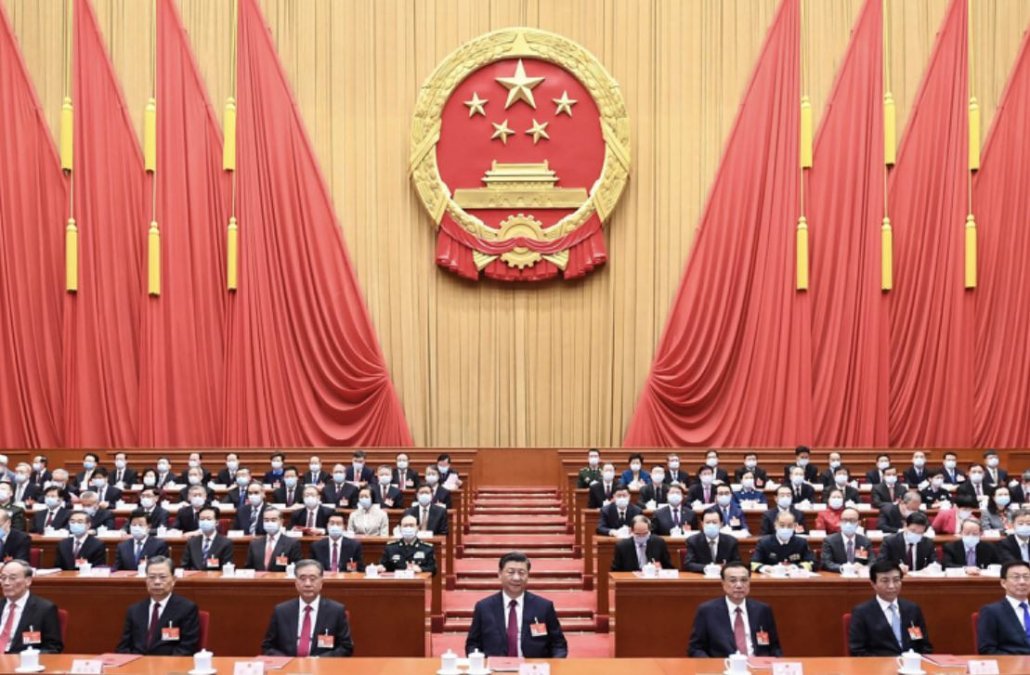Following the return of Beijing from Tehran
According to Iran Gate, Beijing’s return from Tehran
China’s alignment with Saudi Arabia and the Emirates in their confrontation with the Islamic Republic, especially Beijing’s defense of the UAE’s position on the three islands of Iran, has brought the East-focused political crisis to the forefront. Chinese and Saudi leaders, in their meeting in Riyadh, have agreed to strengthen bilateral cooperation to ensure the peaceful nature of Iran’s nuclear program.
After their three-day meeting, the two sides requested Iran to cooperate with the International Atomic Energy Agency and respect the regime of non-proliferation of nuclear weapons. According to Saudi Arabia’s state news agency SPA, Iran was asked to respect the principles of good neighborliness and refrain from interfering in the internal affairs of other countries.
China, along with Russia, is considered one of Iran’s main allies in the Islamic Republic’s nuclear dispute. Iran also sees this country as a strategic ally, despite widespread domestic criticism, as Tehran has signed a 25-year cooperation agreement with Beijing.
According to a joint statement, China has declared its support for the preservation of security and stability in Saudi Arabia and opposes any attacks on its territory, interests, and citizens. China also calls for non-interference in the internal affairs of Saudi Arabia.
Xi Jinping’s remarks on the strategic depth of the Islamic Republic.
According to a joint statement, China has declared its support for the preservation of security and stability in Saudi Arabia and opposes any attacks on its territory, interests, and citizens. China also calls for non-interference in the internal affairs of Saudi Arabia.
Chinese President Xi Jinping, in a meeting with King Salman and Crown Prince Mohammed bin Salman of Saudi Arabia, expressed appreciation for their country’s efforts and initiatives to end the war in Yemen and encourage dialogue between the parties involved in the conflict. Both sides emphasized the importance of supporting the leadership council of the Yemeni Republic and the commitment of Iran-backed Houthis to maintaining the ceasefire.
They urged the Houthi militias to cooperate with the UN Special Envoy for Yemen and actively participate in peace initiatives to achieve a permanent and comprehensive political solution to the Yemen crisis. Regarding Syria, the two sides emphasized the need to intensify efforts to reach a political solution, restore security, and end terrorism in the country.
The statement also mentioned Lebanon, where both countries expressed their concerns about the instability and lack of unity in its territories. China and Saudi Arabia consider dialogue and consultation necessary to ensure Lebanon’s ability to overcome its crises.
According to them, these actions are necessary to prevent Lebanon from becoming a breeding ground for terrorist organizations, security disruptors, and a source of drug trafficking.
China and Saudi Arabia also deem it necessary to strengthen bilateral cooperation in the energy sector and expand cooperation in line with common interests. In this meeting, multiple agreements were signed in various fields such as petrochemicals, renewable energy, information technology, digital economy, economic development, and peaceful use of nuclear energy. The two countries also regarded deepening bilateral relations based on non-interference in each other’s internal affairs as the right path for their future relations.
The future of studies in Beijing is uncertain for the Islamic Republic.
According to exclusive news received by Iran Gate from informed and diplomatic sources of institutes and future studies institutes affiliated with the Communist Party University in Beijing, it has been concluded that for at least seven or eight years in the future, it will not be possible to open the account of the special features of the political system governing Iran. This research was conducted using informational data and field research.
Apparently, the ruling party in China has also been convinced to act with more caution in its relations with Tehran and not take any specific actions regarding major investments and strategic relationships. However, it can be well understood from the recent positions of the Chinese president and the dispatch of a politically demoted force from the party to Iran, followed by the statements of Beijing’s turnaround and retreat.


